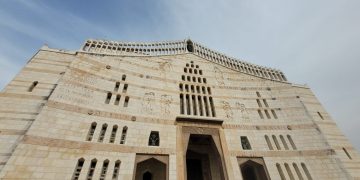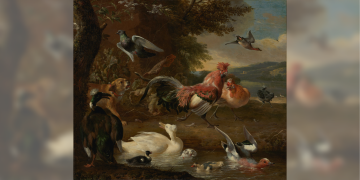When Paul first visited Ephesus, it was but a stop on his journey back to Jerusalem that he wasn’t even sure he would ever return to, telling two friends he left there, “‘I will return to you if God wills,’” (Acts 18.21). But as we know, Paul did return to Ephesus (Acts 19) and established a church that became one of the seven great churches of Asia.
And oh, the stories we are told of Ephesus! There were the miracles – handkerchiefs that bumped into Paul could heal diseases and cast away evil spirits. There were the pretenders and blasphemers – opportunistic Jewish exorcists tried to invoke Jesus’ name, to which the evil spirit said “‘Jesus I know, and Paul I recognise, but who are you?’” (Acts 19.15) and then proceeded to beat up said exorcists.
There was also that very confused riot which led to two hours of shouting in the local theatre – shrine craftsmen began complaining that Artemis worshippers converting to Christianity had hurt their bottom line. When the assembly had fully escalated into a riot, “some cried out one thing, some another, for the assembly was in confusion, and most of them did not know why they had come together” (Acts 19.32).
After spending three eventful years in Ephesus, Paul moved on through Greece and Macedonia, swung around Corinth, and began a return to Jerusalem during which he made a stop in Miletus, a city about a day’s walk from Ephesus. He calls for the Ephesian church elders to meet him there, and says this to them:
And now, behold, I am going to Jerusalem, constrained by the Spirit, not knowing what will happen to me there, except that the Holy Spirit testifies to me in every city that imprisonment and afflictions await me. But I do not account my life of any value nor as precious to myself, if only I may finish my course and the ministry that I received from the Lord Jesus, to testify to the gospel of the grace of God. And now, behold, I know that none of you among whom I have gone about proclaiming the kingdom will see my face again. (Acts 20.22-25)
Their response? Weeping, embracing, and sorrow, knowing they will never reunite (Acts 20.36-38). It seems like the usual type of farewell from when you send a friend off at the airport or after a meaningful dinner, but what stuck with me was the line, “Being sorrowful most of all because of the word he had spoken, that they would not see his face again” (Acts 20.38).
For all the powerful doctrine, for all the awesome miracles, for all the good work that was done, what moved their hearts most was their love for each other. Jesus also famously instructed his disciples, “By this all people will know that you are my disciples, if you have love for one another,” (John 13.35). Indeed, Paul wrote, “Be imitators of me, as I am of Christ,” (1 Cor. 11.1) while he was still in Ephesus.1
A good friend once reminded me to not miss the story that is happening around me. It is easy to get lost in chasing the next big thing or milestone and thus lose sight of the people around me that are a major part of life itself. When serving others as a follower of Christ, it is similarly easy to get lost in doctrine, theology, and intellectualism, forgetting the supernatural love that joins us to the Lord and our community as it did for Paul and the Ephesians. The church of Ephesus shows me how an otherwise ordinary community is made extraordinary by how they love each other through their love of God, and it always reminds me to do the same.































































